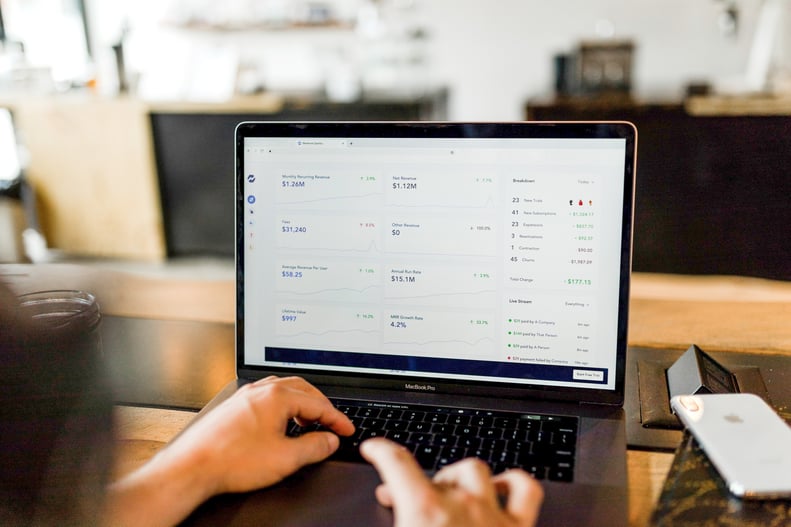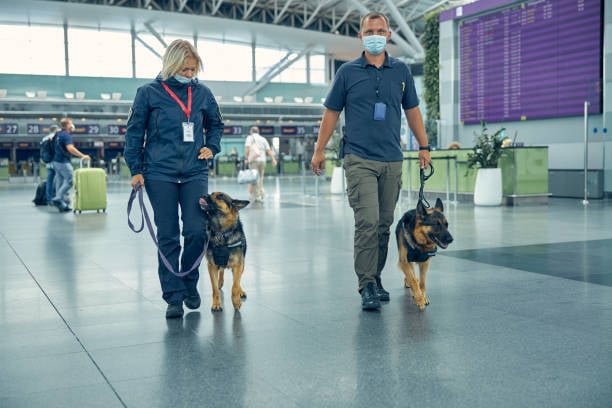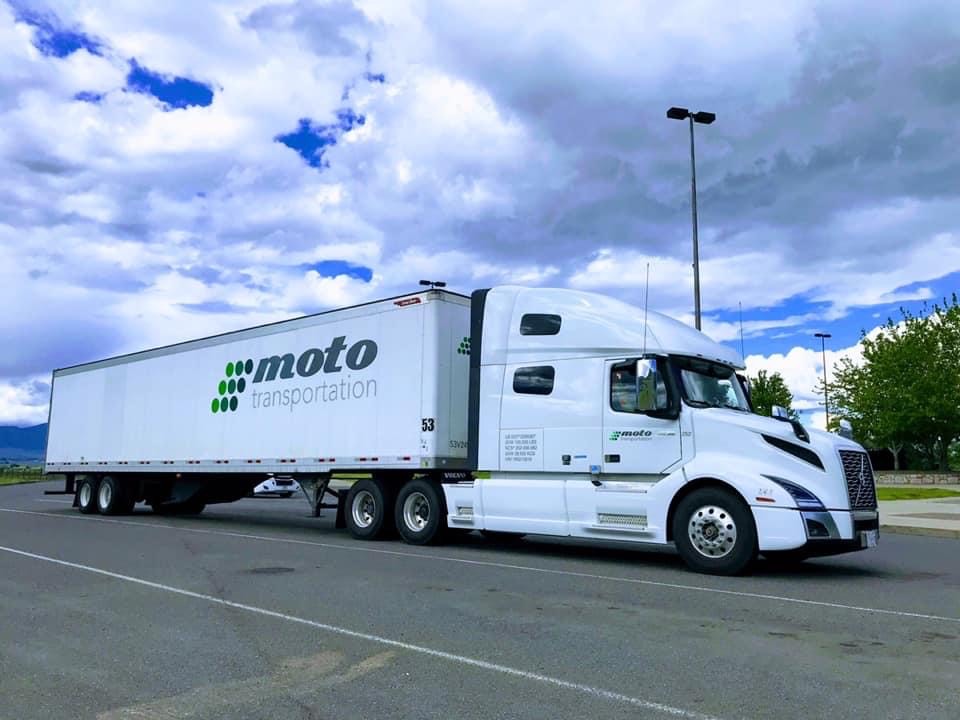Customs brokers offer specialized services and play a crucial part in international trade and transportation, but their job is still poorly understood by many importers and exporters, especially novices. A customs broker is an integral part of many types of international trade.
Learn more about customs brokers' role in international shipments and the paperwork required for customs clearance.

Customs Broker.
The primary duty of a customs broker, who must hold a license from the U.S. Customs and Border Protection, is checking a shipment against a list of import/export regulations to make sure it's legal to transport the products in question. They can help you file your taxes, pay your obligations, and settle outstanding balances.
One who acts as a go-between for an importer and the customs office of a foreign government is known as a customs broker. One must pass a customs broker exam to obtain a license to work in several nations, including the United States.
Packages that aren't properly declared at customs risk being kept for an extended period, at the shipper's expense, or even being confiscated. Employing a customs broker service can be a cost-effective option if you're unsure your shipment complies with all regulations for customs clearance.
What Exactly Does a Customs Broker Do?
Countries around the world can keep their economies afloat and meet the needs of their inhabitants by importing and exporting goods. Without these international trade networks, people would be cut off from one another, and their standard of living would suffer.
A country's legal framework is responsible for controlling the flow of people and goods into and out of the country. The customs service's responsibility is to inspect all incoming and outgoing goods to ensure they conform to the country's regulations. A customs broker will coordinate with government agencies to ensure their customer complies.
Customs brokers are employed by businesses and governments to keep them updated on changes to import/export legislation, tax rates, and paperwork requirements. Because this data differs greatly from region to region, businesses often employ the services of brokers to keep track of it all on their behalf.
For any shipment of goods, the customs broker has to acquire and complete all required documentation for submission to the relevant authorities. They should be familiar with the necessary paperwork and have no trouble getting it ready in time. They act as an intermediary between the government and the importer/exporter. They determine appropriate rates and collect the necessary fees. They file claims for lost or damaged goods, keep tabs on shipments, and deal with customs inspectors.
Customs brokers also advise their clients on how to best approach different marketplaces and which ones to avoid. Companies can benefit from their knowledge of tariffs and laws, which allows the company to expand into new areas. Businesses like Ship Moto count on customs brokers to maintain cordial relationships with regulators and know the rules as they evolve. This way, the firm can conduct business without fear of violating laws.
Any procedures associated with customs clearance, such as determining the HS code that you will use to categorize your products, are the responsibility of your customs broker. So that you can focus on running your business, this simplifies the shipping procedure and removes the headache of dealing with customs and duties. If you hire a customs broker, you won't have to worry about getting fined or having your shipment held up.

Customs Broker Cost & Fees
A variety of variables influence the expense of hiring a customs broker. The origin country, the type of broker, the documentation required, and the number of imported products all play an essential role in the end cost. It all comes down to what services you need, which will determine the final price. A broker's charge may seem like a lot compared to the potential cost of fines and delays if you try to handle customs clearance on your own.
How to Choose a Custom Broker
Your goods' timely and lawful delivery depends on your selection of a competent customs broker. Because of this, deciding how to rate and hire a customs broker is crucial.
If you'd want to hire a customs broker, keep these things in mind:
- Choose a Licensed Customs Broker
For this reason, it's crucial to find a broker that employs a modern, technology-driven customs declaration system managed in-house rather than licensed out. They should also be licensed customs brokers or declaration bureaus in your country (s).
Work with a broker with access to cutting-edge IT infrastructure. You can establish a direct connection to your ERP system, facilitating the smooth and reliable transmission of the commercial invoices, packing lists, and other documents. They should also be able to return valid customs permits to you electronically.
They can simplify customs clearance procedures, and they can reduce the amount of effort required of you, thanks to technological advancements.
- It's Essential to Employ a Broker with Experience in Your Specific Field.
A customs broker who specializes in the goods you are importing or exporting (such as semiconductors, medicines, oil and gas equipment, autos, food, textiles, etc.) will be able to assist you better than a generic customs broker.
It is crucial to pick a broker whose background is a good fit for your needs because not all brokers have experience with all products or all government agencies. You'll save a ton of cash and tons of time by doing this.
- Good Standing with the Government
Customs brokers need to be familiar with local, regional, and even global government authorities to cope with customs procedures that vary from country to country.
Consistent shipment can be smoother and more easily navigated if a solid working connection is in place.
Involvement in or certification from government customs and security programs like C-TPAT (Customs-Trade Partnership Against Terrorism) and AEO can help attain this goal (Authorized Economic Operator).

Documents Needed for Custom Clearance
Clearing customs can take some time. The quality of your experience on that trip is crucial. Naturally, there may be some queries and concerns concerning the process of clearing your imports at customs, but a trustworthy customs broker will be able to address all of your concerns. Perhaps even more crucial than knowing the process and asking your broker questions is having all the necessary paperwork ready. Time and stress can be avoided by both you and your customs broker if the necessary paperwork is prepared in advance. Having the right paperwork is crucial in the customs clearance process.
These are some examples of the relevant paperwork:
- Documents for exports include a purchase order from the customer, a sales invoice, a packing list, a shipping bill, a bill of lading or air waybill, a certificate of origin, and any other documentation the buyer requests.
- Documentation for imports includes a purchase order from the buyer, a sales invoice from the supplier, a bill of entry, a bill of lading or air waybill, a packing list, a certificate of origin, and any other documentation required by the buyer, the financial institution, or the importing country's regulations.
These are the necessary papers to let you go through customs:
- Commercial Invoice
Useful for transactions involving foreign countries, this paper is a staple of international business. All relevant information must be included on the business invoice when sending goods abroad. A valid HTS code, manufacturer, country of origin, destination, and shipment date are required for cargo clearance. The manufacturer is the entity responsible for creating the product. Commercial invoices' primary function is to establish tariffs. They must include each party's details on a commercial invoice. There are a few other things that must be present on a commercial invoice:
- Form of Containers
- Definition of Products
- Details on Shipping
- Particulars Regarding the Sale Date and Conditions
Please review the customs invoice in English before filling it out. Customs invoices submitted for U.S. clearance must contain all mandatory fields.
Take a look at the useful links below that can assist you in generating Customs Invoices, helping you to fulfill all of your document obligations as per CBSA (Canada) or CBP (US).
- Arrival Notice
Products have been delivered. Upon entering U.S. territory, the carrier issues this warning. An arrival notice is not a release document and should not be used as such. The receiver can now clear customs and schedule a pickup, thanks to the information provided. Hiring a customs broker is the quickest way to get things done. After receiving an arrival notification, a manifest query is run to verify the accuracy of the transmission supplied to Customs regarding the precise location of the cargo and its Automated Manifest Status (AMS). All of these papers serve an important purpose in getting your shipment through customs.
If you need assistance clearing customs, Moto is here to help you get through the process quickly and easily so you can return to running your business. For more information about how to begin our customs clearance process, visit the Moto resources page.
- Packing List
Packing lists are useful for customs officials who may inspect shipments based on the information provided by the shipper or freight forwarder. Your packing list should mirror the details of your invoice. For this reason, the packing list and invoice are necessary tools for facilitating customs clearance. Invoices and packing lists must be in sync with one another. Remember that a packing list is not a commercial invoice. A packing list is used to verify the shipment. The packing list should specify the container type. Containers for shipping include but are not limited to boxes, crates, drums, and cartons.
- A Bill of Lading (BOL) or Way Bill
A Bill Of Lading/ Waybill is a document issued by the carrier to the shipper. This document requires exporters to get paid and importers to receive their goods. If the shipment is damaged, delayed, or lost, you won't get paid without a BOL to prove it. When shipping internationally, the BOL will give you a tracking number so you can keep tabs on your shipment.
- Bill of Entry
It is the work of the importer and carrier to complete and sign the bill of entry. The proper authorities inspect and evaluate the products as soon as a bill of entry and other necessary paperwork is turned in. After the process is complete, the importer can submit an ITC claim.
- Import License
In most cases, it is valid for 18 months to a year and details the maximum allowable import amount and product type. Many products are open for import in certain nations. To clear customs with chemicals, medications, precious stones, plants, or animals, importers must obtain the appropriate import license.
- Health Status Documents
A health certificate is required only when transporting animal or plant-based foods across international borders. That the food in the shipment is safe for human consumption and complies with all applicable export restrictions is attested to by this document. Official government agencies in the country where the shipment originates issue this certification.
- Purchase Order & the Credit Letter
A purchase order is an agreement between an importer (the buyer) and a supplier (the seller) to purchase goods (the exporter). Details on the goods, such as quantity and cost, as well as payment and shipping arrangements, are included. Whenever an importer requests a letter of credit, the issuing bank promises to pay the exporter the specified amount of money, and it is obtained by the importer when the purchase order has been finalized and accepted by the issuing bank.
- Test Report (If Needed)
When customs agents doubt a product's quality and value, they may submit a sample to a certified lab for analysis. The lab must inspect the product and give a test report to release the shipment.
- Industrial License
An industrial license may be necessary for the import of specific items. An industrial license can prove that an importer qualifies for reduced import duties. You'll also need a copy of the industrial license to clear customs with certain goods
- GATT/DGFT Declaration
The importer is responsible for submitting a GATT and DGFT declaration during customs clearance. It needs to be submitted in line with the guidelines of the GATT (General Agreement on Tariffs and Trade). The following are some of the prerequisites for submitting this document:
- Assessment by Customs
- You should maintain three copies of the declaration for your records.
- To be submitted to the customs office, along with the original, are two copies of the declaration.
- You should provide the declarant with one copy of the declaration.
The form and the accompanying customs declaration must be on file for three years.
The declarant must provide accurate and complete information on the form.
- Commercial or Pro Forma Invoice
In addition to the necessary paperwork for Customs Clearance, you'll also need commercial invoices. This document serves as a statement of the commodities' monetary value. The issuer is always the vendor or carrier. For two purposes, you'll require this Customs Form M and PAAS Reports invoice before arrival to determine appropriate import taxes.
- Technical Write-up
Only complex products, like industrial machinery, require a Technical Write-up. Typically drafted to aid in the administration of commodities, it describes the product's characteristics, capabilities, and applications. It helps authorities define the product correctly and understand the value-added cost.
FAQs
So that you may be sure you have all the information you need to transport your freight properly, let's take a look at some of the most frequently asked questions concerning using a customs broker and the documents needed to clear your goods with customs.
-
Why is it Beneficial to Work with a Customs Broker?
As a bonus, customs brokers may also offer: As part of their risk management services, they ensure their importer clients abide by all applicable Customs laws. They can help you with difficult problems and advise you on minimizing your tax and customs fees.
-
How Does Clearance Work?
The tasks involved in the customs clearance procedure include preparing and submitting the paperwork required to facilitate the export process or imports into the country, describing the client during the customs examination, evaluation, payment of duty, and taking delivery of the cargo from customs after clearance with the paperwork has been completed.
-
Can I Clear with Customs By Myself?
You can. But why go through the stress when you can have Moto do it for you with extra diligence and attention to your shipping?
Conclusion
Multinational corporations might find it difficult to provide the same service level in all areas.
Similarly, while working with a qualified customs broker, you can rest assured that you will get the exact high-quality service no matter where you happen to be. Familiarity usually correlates to improved efficiency in clearing goods; therefore, a customs broker with a high level of both is crucial.
A trustworthy customs broker will also provide frequent training or seminars to facilitate the clearance of imports and further educate companies on customs procedures and the current rules. Your customs broker will not only help you avoid shipment issues but will also look for and take charge of any opportunities presented by relevant trade agreements. They may lower duties and taxes on shipments thanks to free trade agreements like (NAFTA) and (TPP).
 (604) 757 2441
(604) 757 2441